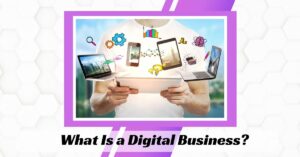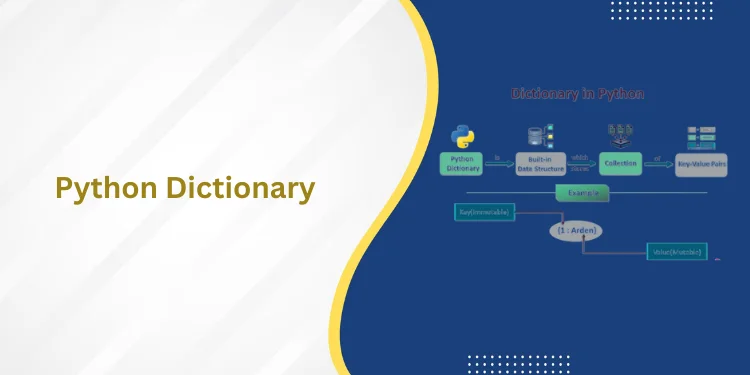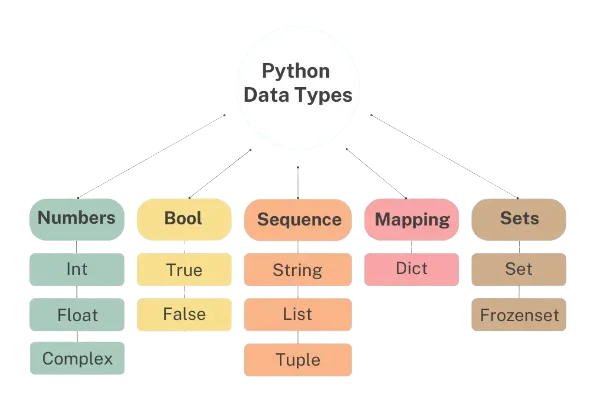Table of Contents
ToggleIntroduction to Digital Business
Digitalization refers to the process of utilizing digital technologies to transform a business into a digital one. Its primary goal is to increase revenue and create new value-added opportunities. Currently, many companies are actively pursuing digitization and those who have adopted this strategy have seen great success in terms of economics, finance and customer satisfaction.
Staying ahead of the digital revolution is critical for anyone looking to launch or transition their business. Artificial Intelligence, Machine Learning, Virtual and Augmented Reality, Robotic Process Automation (RPA), Quantum Computing, Edge Computing, Blockchain, 5G, and Internet of Things (IoT) are just some of the cutting-edge technologies transforming the landscape. Keeping pace with these developments can make all the difference in succeeding in the digital age.
The Internet is a seemingly boundless universe, making it impossible to measure its true magnitude. However, the sheer amount of data stored by tech titans Microsoft, Amazon, Google, and Facebook alone provides an indication of its enormity. In fact, these four companies hold an estimated 1.5 million terabytes of data – enough to power more than two billion websites!
It’s high time to take a look at digital business – the process of digitization and all it entails. This article will provide a comprehensive overview of what digital business is and how it can be used to drive success. We’ll examine the key aspects of the process and explore the benefits that come along with implementing it. This piece will provide you with all the information you need to make informed decisions about digital business, from the technology involved to the strategies needed for success. So, let’s get started on our journey into this fascinating world!
What Is a Digital Business?

Nowadays, it appears that many people are operating digital businesses. However, leading business executives have different interpretations of what it means to go digital. Consequently, the importance of technology adoption and transformation varies among them.
Digital businesses typically rely on technology for operations and expansion. Depending on the sector, this could involve:
- Utilizing productivity apps and task management systems to streamline work processes.
- Using Artificial Intelligence (AI) to enhance customer experience.
- Collecting data to enhance business insights.
- All work should be done through digital platforms for companies that operate solely online.
Taking a few steps toward the digital world is just the beginning. True digital transformation is a journey that requires you to leave behind manual processes and venture into an ever-evolving, customer-centric culture driven by technology.
Digital business is transforming the way companies operate and compete in the modern world. By taking advantage of digital technologies and data driven decisions, businesses can unlock new opportunities and expand into new markets while reducing costs and improving efficiency. In this blog, we will read about the benefits of digital business, essential technologies, different models, challenges to digital transformation, automation/AI’s role in cost reduction, the power of data driven decisions, and the importance of a seamless online/offline customer experience.
Essential technologies for digital businesses include cloud computing, big data analytics tools such as Hadoop and streaming services such as Kafka for real time processing on large datasets. Furthermore, the integration of machine learning algorithms is becoming increasingly popular for predictive analytics or process improvement initiatives related to customer segmentation or marketing campaigns. Through these technologies companies can store larger amounts of data in less time while simultaneously extracting insights that have never been seen before.
By leveraging these advanced technologies businesses are shifting their models away from traditional methods to a more iterative approach that relies heavily on data science techniques like Bayesian statistics.
Examples of Digital Business

An example of a digital business is Amazon.com. Initially an online bookstore, Amazon.com has developed into a strong e-commerce platform that uses digital technology to link buyers and sellers and manage transactions. One of the best examples of a digital business is Uber.
Digital Business Benefits

What are the benefits of Digital Business? To answer this question: Transforming a business into a digital one offers numerous advantages, including improved effectiveness and efficiency, increased productivity, and more. Here are several of the benefits of digital business:
1. Enhances Productivity
Reimagining manual processes with automation can have revolutionary impacts. Take, for instance, an assembly sector where robots are put to work – robotics eliminate the need for tedious manual labor and minimize mistakes while speeding up the process. No longer confined to the slow-paced human hand, production is now streamlined and efficient.
2. Lower Operational Costs
Every business knows that time is money, which is why automating manual processes and tasks can be a real game-changer. Streamlining these laborious jobs can cut back on how much time it takes to get them done and help reduce operating costs by eliminating the need to pay hourly wages or monthly salaries. Automation can be the key to unlocking greater efficiency and productivity.
Organizations that fail to digitize their processes can find themselves paying a hefty price – up to 25% of their annual revenue! Human error is inevitable when manual processing is involved, leading to costly mistakes. By digitizing operations, businesses can benefit from improved efficiency and cost savings.
The power of digitalization is remarkable – it has the potential to revolutionize operations, slashing up to 90% off companies’ costs. This means that businesses can free up resources to focus on growth and innovation, taking their organization to the next level.
3. High Quality and Consistency
The beauty of a digital business is that it ensures operations are carried out with uniformity and precision, yielding the highest quality results every single time.
The beauty of a digital business is that it ensures operations are carried out with uniformity and precision, yielding the highest quality results every single time.
4. Governance and Reliability
The automated services are unfailingly dependable, providing users with a rock-solid assurance that they can trust. They offer a range of invaluable benefits, such as:
- Run your business.
- We provide clients with trusted and reliable pathways to success, ensuring they have the tools they need to reach their goals.
5. Better Decision Making
Information management and digitization are like two sides of the same coin – they go hand in hand. Analyzing the information makes it
possible to transform it into valuable knowledge that can be used to make smarter decisions. Knowledge is power, after all!
4 Concepts of Digital Business
Transforming into a digital business is a monumental shift, so it’s vital to understand the core concepts driving your evolution. Analyze the building blocks that will help you get there: modernize processes, align teams with technology, and embrace data-driven decisions. Make sure to chart a course that will bring your organization up to speed and make you the envy of other businesses. A successful digital transformation isn’t just about investing in new technologies — it requires a fundamental rethinking of how you do business and an eye towards the future.
Most organizations cite the following four concepts:
1. Flexibility
The world is ever-evolving and companies must adjust to keep up with the pace. The COVID-19 pandemic pushed many businesses to pivot from on-site to work-from-home at the blink of an eye; a feat made possible only by embracing digital technology. This allowed them to remain agile, swiftly adapting to changes without being bogged down by cumbersome manual processes.
2. Scalability
Scalability allows processes to flex and flow with the ever-changing needs of your organization. With a scalable business, you can quickly adapt to moments of growth or increased demand, such as onboarding new staff or accommodating a large client’s data storage needs. It’s an agile way to stay ahead of the curve and ensure that your business is ready to tackle whatever the future may bring.
3. Culture
Digital business requires changing how you operate, and this starts with changing how you think. To truly become a digital business, you need your staff to be on board. Though tech leaders in your organization may be at the forefront of this work, building a philosophy of productivity, efficiency, and automation into every department’s mission is vital to success.
4. Quality
As we round out our digital business concept, it’s vital to remain focused on the quality of the changes we make. In the excitement of innovation, we may start to chase after novelty for its own sake – but this won’t benefit us in any way. If the new steps aren’t contributing to an improved product or service, then it’s time to go back to the drawing board and come up with a more effective strategy.
Examples of Popular Digital Businesses
Digital business is no longer just the realm of major companies such as Home Depot and GE. In fact, more and more digital businesses are popping up online, existing entirely in the digital world. These online-only startups often boast incredibly low startup costs, allowing entrepreneurs both seasoned and fresh to the scene to quickly scale their operations to meet the demands of their markets – a boon for any aspiring business owner!
Etsy, the beloved ecommerce platform that offers an ever-evolving selection of handmade goods, is teeming with digital business owners. A whopping 97 percent of Etsy sellers manage their businesses from the comfort of their own homes, and a remarkable 75 percent are one-person operations. Though typically considered “microbusinesses”, digital entrepreneurs on Etsy are proving that one person can make a living solely off their venture – in 2017, 32 percent of these merchants reported it as their sole occupation.
Growth of the Digital Economy

The digital economy is expanding at an astonishing rate, with the global economy soaring from an estimated $11.5 trillion in 2016 to a projected $19 trillion by 2025. A number of different forces, such as the boom in online shopping, the ubiquity of mobile devices, and the emergence of the sharing economy powers the surge in growth. This new landscape means corporations must have a formidable digital presence to remain competitive and successful.
The digital economy is booming, now worth trillions of dollars and still growing. This rise is fueled by an increasingly accessible Internet, the surge in online shoppers, and the ease of setting up and managing a digital presence. Businesses are taking advantage of this shift, as it’s transforming how they operate and ultimately influencing how the economy functions. With no signs of slowing down, this trend looks set to continue for years to come.
Common Elements of a Digital Business
A digital business perfectly marries traditional business models and modern digital technologies. Every aspect of its operations is designed to create maximum value for customers, shareholders and stakeholders. As such, the core components of a successful digital business include:
- A customer-centric business model offering unprecedented value, revolutionizing how customers experience their purchase.
- A nimble organization that can quickly adapt to customer demands or shifting market conditions, ready to react and pivot in a heartbeat.
- A culture that embraces data as the driving force behind all decisions, utilizing it to navigate the ever-evolving landscape of success.
- We strive to deliver a remarkable customer experience that leaves a lasting impression.
Digital Business vs. E-Business
The 21st century has seen businesses of all shapes and sizes turn to digital methods to expand their horizons and stay ahead of the competition. Digital business is the art of blending the physical and digital worlds together to create innovative new business opportunities. On the other hand, e-business uses the power of the internet to conduct transactions between companies and customers, such as marketing, sales, customer service, and working with business partners. It’s a brave new world that can be incredibly beneficial for those who know how to use it.
How to Build a Successful Digital Business?
Are you venturing into the digital realm with an established business, or launching a new venture? No matter your situation, these five tips will help you create a flourishing digital business. Immerse yourself in the strategies below to watch your success skyrocket!
1. Automate
Are you eager to skyrocket your business’ success with the power of automation? With the power of AI, you can easily streamline and optimize mundane tasks that would otherwise consume valuable time and resources. Take a look at your processes and start automating wherever possible – it’s the perfect way to jumpstart growth for your digital business.
2. Train Your Team
Your people are the cornerstone of your success. Investing in their technical training will ensure that they are empowered to use new technology and can help you expand your business by finding innovative ways to adopt it.
3. Stay Agile
Navigating the digital landscape can be a challenge, but with agility in your corner you’ll be well-positioned to reach success. Constantly evaluate and fine-tune your transformation to ensure you’re always inching closer to your desired end-product. Gather data that will help you make informed decisions for the future and steer your business in the right direction. By staying nimble, you can set yourself up for long-term success.
4. Invest in Digital Marketing
No matter how meticulously organized your business is, it won’t get you very far without customers. Put your trust in a savvy digital marketing strategy to make sure every potential customer knows about your organization. Prepare your marketing team with the best digital marketing tactics available, from search engine optimization to advanced social media management. With the right approach, you’ll be primed and ready to reach out to prospe
ctive customers and grow your business.
5. Don’t Be Afraid to Go Big
Don’t let the digital age dim your ambition! Set your sights high and you’ll be amazed by the heights that this new technology could take you to. There is seemingly no limit to the growth potential of digital businesses, so don’t underestimate the power of progress.
Conclusion
An effective digital business requires strategic planning and continuous reconsideration of strategies to stay ahead. In conclusion, some key takeaways can help you develop a successful digital business.
- First, it’s important to create a clear plan for your digital business that considers your customers’ needs and expectations. This will set the groundwork for success and help ensure that you provide a great customer experience.
- Next, you should develop content marketing strategies to strengthen your search engine optimization and drive organic traffic towards your site. Implementing multimedia elements into your content will also add value and attract potential customers to your products or services.
- Finally, consider investing in digital advertising campaigns and social media channels to reach out to more audiences effectively. Harness the power of analytics tools to track progress and optimize campaigns in real time.
These are just a few takeaways to keep in mind when building a successful digital business. Suppose you require further assistance or have questions. In that case, there are plenty of resources such as e-books, webinars, white papers, and online mentoring sessions available online from qualified professionals who specialize in this field.
We understand that starting a digital business isn’t easy; that is why we offer comprehensive solutions tailored for all types of businesses so you don’t have to worry about complex setup or maintenance costs associated with traditional methods of marketing and advertising services.
Frequently Asked Questions
What are the challenges of digitalization?
The challenges of digitalization, also known as digital transformation, are numerous and can be effectively managed by utilizing a well-defined strategy. Digitalization involves taking existing processes and services that are usually manual or paper-based and making them more automated and efficient with the use of technology. The first challenge is realizing the need for change from analog to digital methods when managing business operations.
Additionally, there is a lack of understanding amongst many business owners about how to put these changes into effect in their organizations. Many businesses do not have an experienced IT team available to assist with implementation and may require outsourcing specialists who have expertise in this field. Another common challenge with digitalization is integrating new technologies quickly while preserving company culture at the same time. Finally, businesses must consider how they will measure the success of their efforts when making changes related to digital transformation since this usually requires significant investments in both time and money up front without any guarantee of success.
What are the advantages of digitalization?
- Increased Productivity: Digitalization leads to increased productivity through automation of manual tasks, improved supply chain management, and streamlined processes. This allows businesses to increase efficiency and save resources in the long-term.
- Improved Customer Experience: Digitalization creates a more personalized customer experience by leveraging personal data collected from digital interactions. This provides customers with the opportunity to interact with their favorite brands on a deeper level, leading to greater satisfaction and loyalty.
- Enhanced Security: Digitalization makes it easier for organizations to protect confidential information through advanced security solutions such as two-factor authentication, encryption, antivirus software and other technologies that safeguard networks from online threats.
- Better Business Insights: Digitizing operations provides companies with access to real-time data that can be leveraged for better decision making and predictive analytics capabilities that help identify trends and opportunities in the marketplace before they arise organically.
How do you know if your digital marketing is working?
To know if your digital marketing efforts are working, you should track the success of each campaign through analytics. To do this, you can measure key performance indicators (KPIs) such as website traffic, leads generated from specific campaigns, cost per lead or acquisition, and other important metrics. You may also want to look at the conversions for each campaign—the percentage of people who completed an action after viewing your ad or content—and compare it to previous campaigns and industry standards.
Additionally, tracking client feedback through surveys and customer reviews is another way to gauge how well your digital marketing efforts are working. By monitoring these KPIs on a regular basis and reviewing them in relation to past results, you can determine whether your digital marketing strategies are producing positive outcomes or if they could benefit from some tweaking.
How can a firm be ‘digitized’?
Digitizing a firm can mean different things, depending on the size and scope of the business. Generally speaking, digitalization involves bringing together a variety of digital technologies to improve processes and operations. This could involve automating manual tasks, storing data in cloud-based systems, incorporating artificial intelligence (AI) and machine learning algorithms into day-to-day processes, and taking advantage of digital marketing techniques like search engine optimization (SEO).
For small businesses or startups, this might mean building an online presence through social media channels or creating an ecommerce website to reach their customers directly. For larger firms with established customer bases or complex production lines, it could mean integrating robotic process automation technologies into existing workflows, leveraging analytics tools to glean insights from customer data industry trends and more. Additionally, blockchain technology provides opportunities for improving supply chain management while providing enhanced security features as well.
In short, no matter what type of organization you are, there are options available for digitizing your firm that can help drive efficiency improvements and create new revenue sources down the line.
How to grow your digital business?
- Develop a Strategy:
- Invest in Quality Content:
- Utilize Social Media Marketing:
- Grow Your Email List:
- Leverage SEO Practices:













